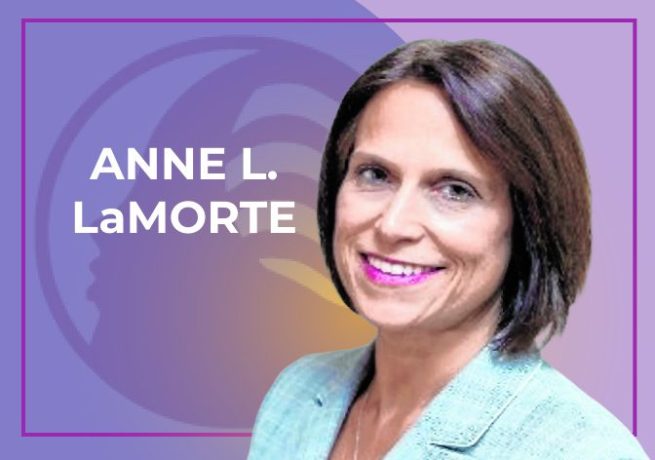Anne L. LaMorte was appointed as Chief Financial Officer of the Nassau County Industrial Development Agency and the Nassau County Local Economic Assistance Corporation in February 2020.
Ms. LaMorte has previously worked in both the public and private sectors.
Prior to her appointment with the NCIDA and NCLEAC, she served as Chief Financial Officer for the City of Glen Cove Community Development Agency, Industrial Development Agency and the Local Development Corporation for 15 years.
She was responsible for all finance, accounting, investing, budgeting, and reporting for these Glen Cove agencies. Anne also managed the finances for the Glen Cove Waterfront Development /Garvies Point project, Herbhill Garvies Point Road reconstruction and the Downtown Village Square project.
Anne assisted in the management of over $40 million in grant funding for the City of Glen Cove including working with federal, state, and local agencies on grant reimbursements for the City of Glen Cove.
She is the recipient of the Government Finance Officer Association Award for Financial Excellence for both the CDA and IDA Consolidated Annual Financial Reports (CAFRs ).
What are the most significant challenges you have as a woman in your industry?
Gender Bias: In the realm of economic development, gender bias has been an unwelcome companion. I’ve experienced being passed over for promotions, receiving lower compensation than my male counterparts, and at times, not being taken seriously in meetings and discussions simply because of my gender.
Work-Life Balance: Achieving that elusive work-life balance has been a constant struggle. Juggling the demands of a challenging career with the responsibilities of raising three children has forced me to make difficult choices between work commitments and family obligations, often causing stress and guilt.
Networking Challenges: Building professional networks in a male-dominated industry has been no small feat. Many networking events and conferences were skewed toward men, making it challenging to connect with peers and potential collaborators who could have enriched my professional journey.
Double Standards: The persistent presence of double standards was a source of frustration. I’ve felt the need to work twice as hard as my male colleagues to prove my competence and dedication, an unfair burden that often sapped my energy.
Career Progression: Advancing in my career has sometimes felt like an uphill battle. Opportunities for growth and development were not always readily available, and it took persistence and assertiveness to break through the barriers that hindered my progress.
Despite these challenges, I persevered, not just for myself but also to pave the way for future generations of women in economic development.
Progress has been made, but our work is not yet complete. We must continue striving for inclusive and equitable workplaces for women in all fields. Together, we can overcome these difficulties and create a brighter future where gender equality is the norm, not the exception. Thank you.

